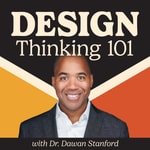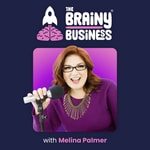Behavioral Grooves Podcast – Details, episodes & analysis
Podcast details
Technical and general information from the podcast's RSS feed.

Behavioral Grooves Podcast
Kurt Nelson, PhD and Tim Houlihan
Frequency: 1 episode/6d. Total Eps: 492

Recent rankings
Latest chart positions across Apple Podcasts and Spotify rankings.
Apple Podcasts
🇨🇦 Canada - socialSciences
28/07/2025#95🇩🇪 Germany - socialSciences
28/07/2025#76🇨🇦 Canada - socialSciences
27/07/2025#79🇩🇪 Germany - socialSciences
27/07/2025#53🇺🇸 USA - socialSciences
27/07/2025#77🇨🇦 Canada - socialSciences
26/07/2025#66🇩🇪 Germany - socialSciences
26/07/2025#41🇺🇸 USA - socialSciences
26/07/2025#52🇨🇦 Canada - socialSciences
25/07/2025#42🇨🇦 Canada - socialSciences
24/07/2025#28
Spotify
No recent rankings available
Shared links between episodes and podcasts
Links found in episode descriptions and other podcasts that share them.
See all- https://suicidepreventionlifeline.org/
1399 shares
- https://www.samaritans.org/
1127 shares
- https://www.effectivealtruism.org/
699 shares
RSS feed quality and score
Technical evaluation of the podcast's RSS feed quality and structure.
See allScore global : 57%
Publication history
Monthly episode publishing history over the past years.
Why Generational Labels Are Holding Your Company Back | Jessica Kriegel
Episode 431
lundi 26 août 2024 • Duration 56:25
Are generational labels dead weight?
This week—after many technical difficulties and a nearly-forgotten anniversary—Kurt talks with organizational culture expert Jessica Kriegel about generational divides and why they are ultimately pointless and unproductive for both personal and professional growth. Jessica introduces her “culture equation” framework, revealing three critical elements that drive revenue growth and how missing these elements can lead to stagnation.
A key focus of the conversation is the damaging impact of generational stereotypes in the workplace and how ageism, in any form, prevents us from recognizing people’s unique talents. Through compelling examples, Jessica explains how these stereotypes dangerously influence workplace practices—and what we can do to avoid them.
Tim is back from anniversary-dinner bliss for this week’s grooving session, where he and Kurt reflect on the key themes from Kurt’s conversation with Jessica. The duo offers insights on the power of thoughtful communication and how being intentional with our words can shape organizational culture.
Whether you’re a Boomer, Gen Z’er, or anything in between (sorry Gen X and Milennials), this episode has all you need to challenge stereotypes and start bridging those generational gaps.
© 2024 Behavioral Grooves
Topics[0:00] Generational stereotypes and corporate culture
[6:20] Speed round with Jessica Kriegel
[9:10] Generational labels: a perspective
[23:25] The “Culture Equation” and it’s impact on success
[28:41] The importance of leadership for shaping culture
[36:52] How to align purpose, strategy, and culture
[42:25] Grooving Session: Bridging generational divides with leadership
© 2024 Behavioral Grooves
LinksUnfairly Labeled: How Your Workplace Can Benefit From Ditching Generational Stereotypes
How to get people to give a sh*t | Jessica Kriegel | TEDxStGeorgeStudio
Is Generational Prejudice Seeping into Your Workplace?
Musical LinksAtmosphere - “Sunshine"
The Beatles - "Eight Days a Week"
The Real Reason Some People Succeed | Bob McKinnon
Episode 430
lundi 19 août 2024 • Duration 01:13:57
This week, we dive into a thought-provoking conversation with Bob McKinnon, host of the Attribution podcast and author of America's Dreaming. Bob unpacks the complex factors that determine success and failure, drawing from his own experiences and broader societal influences. He challenges the "fundamental attribution error," where we often credit personal effort over external factors, and how this bias can distort our perceptions of ourselves and others. Through powerful stories, Bob discusses how systemic barriers and limiting beliefs shape life outcomes, emphasizing the need to recognize the roles of luck, privilege, and social connections in our narratives.
Bob, Kurt and Tim explore the ethics of marketing, the overlooked influence of luck in success, and how reframing our stories can foster empathy. With insights into everything from historical injustices to the power of music and storytelling, Bob offers listeners a fresh perspective on the importance of compassionate curiosity in bridging social divides by creating more inclusive conversations. Tune in to discover how understanding attribution can change the way we see the world—and ourselves.
© 2024 Behavioral Grooves
Topics[0:00] Intro
[6:03] Speed round
[9:18] Factors contributing to success/failure
[13:53] Attribution and how it affects perceptions and behaviors
[19:21] Attribution error and its impact on behavior and success
[29:30] Success, privilege, and race in America
[35:00] Land grants, race, and attribution
[46:35] Empathy, storytelling, and judging less to improve relationships
[54:00] Music, identity, and belonging
[1:00:29] Grooving session: Attribution and luck in success
© 2024 Behavioral Grooves
LinksThe Random Factor by Mark Rank
America’s Surprising Views on Inequality
American Dream Score - Bob’s Quiz
America’s Dreaming - Bob McKinnon
Musical LinksNeil Diamond - I am…I said
Tracy Chapman - Fast Car
Luke Combs - Fast Car
Behavioral Science in the Workplace: Tips and Strategies | Becky Frayer
Episode 420
lundi 24 juin 2024 • Duration 56:59
This week on Behavioral Grooves, things get personal – or at least professionally personal – as Kurt and Tim are joined by Becky Frayer, founder and CEO of Behavioral Fusion. Becky shares valuable tips and strategies for overcoming challenges in large organizations and explores the practical applications of behavioral science in the business world.
Throughout their discussion, Kurt, Tim, and Becky emphasize the importance of applying behavioral science practices in the workplace. They explain how storytelling and reassurance can be powerful tools for navigating corporate environments. Through personal anecdotes and real-world examples, the trio reveals how to overcome common work obstacles and integrate healthy behavioral science practices into your company’s everyday routine.
Whether you're a skeptic or an embracer of behavioral science, this episode offers valuable insights and practical advice on using behavioral science principles to drive business growth and improve decision-making. Tune in to hear about the fascinating journey of applying behavioral science in corporate America and gain new perspectives on consumer behavior and organizational dynamics.
© 2024 Behavioral Grooves
Topics[2:42] Intro and speed round
[6:42] Consumer behavior and decision-making in the pharmaceutical industry
[13:30] Using behavioral science to understand consumer behavior
[17:56] Applying behavioral science in business
[27:51] Challenges and insights: applying behavioral science at work
[33:22] The importance of understanding human behavior
[37:54] Desert island music
[40:59] Grooving Session: Using behavioral science insights to drive business success
© 2024 Behavioral Grooves
Links Musical LinksHow To Redesign Social Media Better So That It’s Actually Sociable
Episode 330
lundi 21 novembre 2022 • Duration 55:02
The web was intended to be a way of creating genuine connections with others, but we’re all sadly familiar with the detrimental ways it can be used to spread misinformation. A team of experts at Prosocial Design Network is now using evidence-based behavioral insights to redesign social media interactions, to bring out the best of us online.
We’re honored to be joined on this episode by two of the designers of the Prosocial Design Network - John Fullot and Philipp Lorentz-Spreen. John Fallot is a user experience and graphic designer based in the New York City Metro Area. He co-founded the Prosocial Design Network with colleague Joel Putnam in late 2019, in order to better explore ways that the web could be optimized for prosocial behaviors.
Dr. Philipp Lorenz-Spreen is a research scientist based in Berlin, Germany. His work focuses on decision making online, and finding ways to improve online democratic discourse through environmental interventions.
There are certainly no silver bullets in the effort of minimizing the spread of misinformation. But this conversation gives us hope and provides some insights for everyone on how to approach social media in a better way.
We encourage you to check out the work of the Prosocial Design Network and browse through the interventions they are currently testing: www.prosocialdesign.org.
Topics
(3:34) Welcome and speed round questions.
(6:41) Can we inoculate ourselves from misinformation online?
(8:38) Redesigning the world wide web against misinformation.
(13:28) Is misinformation on social media really threatening democracy?
(16:50) Asymmetry of power between the platform and the users.
(24:15) John and Phillip’s favorite Prosocial Design intervention: frictionless designs and "thank you" buttons.
(28:33) Which social media sites are being proactive with interventions?
(30:47) What is the obligation of behavioral scientists?
(37:11) What music do John and Phillip listen to?
(42:11) Grooving Session with Kurt on Tim on the Prosocial Design Network.
© 2022 Behavioral Grooves
Links
Prosocial Design Network: www.prosocialdesign.org
Prosocial Design Network Slack: www.prosocialdesign.org/community
Prosocial Design Network donations: www.prosocialdesign.org/donate
Maxwell House commercial with Margaret Hamilton: https://youtu.be/tUnNDEygBjA\
Discord: https://discord.com/
Lorenz-Spreen, P., Lewandowsky, S., Sunstein, C.R. et al. How behavioural sciences can promote truth, autonomy and democratic discourse online. Nat Hum Behav (2020): https://doi.org/10.1038/s41562-020-0889-7
Lorenz-Spreen, P., Geers, M., Pachur, T. et al. Boosting people’s ability to detect microtargeted advertising. Sci Rep (2021): https://doi.org/10.1038/s41598-021-94796-z
Episode 10, Kal Turnbull Reddit superstar, Changing the World One View at a Time: https://behavioralgrooves.com/episode/changing-the-world-one-view-at-a-time-with-reddit-superstar-kal-turnbull/
Nir Eyal “Hooked: How to Build Habit-Forming Products”: https://amzn.to/3XeWgMM
Episode 303, From Distracted To Focused: Nir Eyal’s Secrets On How To Be Indistractable: https://behavioralgrooves.com/episode/nir-eyal-how-to-be-indistractable/
Behavioral Grooves Patreon Page: https://www.patreon.com/behavioralgrooves
Musical Links John: Tears For Fears “Everybody Wants to Rule The World”: https://www.youtube.com/watch?v=aGCdLKXNF3w&ab_channel=TearsForFearsVEVOKat Cunning “Could Be Good”: https://www.youtube.com/watch?v=QpFh4dnKPKs
Phillip:Pashanim “Airwaves”: https://www.youtube.com/watch?v=i5wsXLmWhCM&ab_channel=PashanimNulldreinull
Groove Track | Tale of Two Markets: Do We Help People Only For Money Or Candy?
Episode 329
jeudi 17 novembre 2022 • Duration 14:17
Would you help change a stranger’s tire? How about if they offered you $20? Or, what if instead of money, they offered you some candy?
We often think these types of exchanges are financial in nature - but this study explored how there is actually a different type of exchange going on here - a social exchange. When we help a friend move some furniture, invite friends over for dinner, help a stranger out who is in need - these are social exchanges in a social market, one that is separate from the financial market. And what’s even more interesting is that if you bring money into the social exchange, it falls apart.
James Heyman and Dan Ariely explored this phenomena in their landmark study called, “Effort for Payment: A Tale of Two Markets” and is the basis for Kurt and Tim taking a deep look in this Groove Track.
Listen to find out the backstory to the study and the implications from the findings. You can also watch a special video recording of this Groove Track with Kurt and Tim on the Behavioral Grooves YouTube Channel.
Links
Heyman, J., & Ariely, D. (2004). Effort for Payment: A Tale of Two Markets. Psychological Science: https://doi.org/10.1111/j.0956-7976.2004.00757.x
Behavioral Grooves on YouTube: https://www.youtube.com/watch?v=jkmH8St_nsA&ab_channel=BehavioralGrooves
Why Do Good People Let Bad Things Happen? With Max Bazerman
Episode 328
lundi 14 novembre 2022 • Duration 01:06:48
We find it easy to condemn wrongdoers, after they’ve been called out. But why do we often let unethical behavior occur around us, and not speak out? If we take a step back from the idea of there being one “bad apple”, we realize that with any wrongdoing, there is a collection of people who have been complicit in the behavior. Why is there so much fear about speaking up?
“We've created too much fear in speaking up, when in fact, there's so much value in avoiding harm in that process.“ ~ Max Bazerman
Our fascinating conversation with Max Bazerman aligns with the publication of his excellent new book, “Complicit: How We Enable the Unethical and How to Stop”. Our discussion is rich with insight, in particular we delve into the reason that we hold people, including ourselves, more responsible for errors of commission than omission. So how can we avoid errors of omission?
Max Bazerman is a world famous behavioral scientist. He is the Jesse Isidor Straus Professor of Business Administration at the Harvard Business School and the Co-Director of the Center for Public Leadership at the Harvard Kennedy School. He is the author, co-author, or co-editor of twenty books and over 200 research articles and chapters. His awards include an honorary doctorate from the University of London and both the Distinguished Educator Award and the Distinguished Scholar Award from the Academy of Management.
Over the years, Max has brought focus to the areas of decision making and ethics. Having been on the show before, we were delighted to welcome Max back to Behavioral Grooves once again. We hope you enjoy this episode of Behavioral Grooves. If you do, please write a review or share with a friend on Apple Podcasts. Thanks, listeners!
Topics
(3:16) What does it mean to be complicit?
(13:02) How errors of omission play an under-rated role in complicit behavior.
(18:21) How to move away from the idea that there is one bad apple?
(21:48) Unethical behavior goes unnoticed when it happens gradually.
(23:14) Do we legitimize unethical behavior in our leaders?
(25:51) Do employees need to be made to care about unethical behavior or do they need to demand ethical behavior from employees?
(27:26) When complicitors are engaged in illegal behavior.
(29:29) How can we hold people accountable for their bad behavior?
(37:33) Max’s personal story of being complicit.
(39:31) Are there new norms on data collection that can eliminate fraud?
(42:23) Dolly Chugh’s question for Max.
(46:11) How can we all become better people?
(49:05) What music does Max enjoy?
© 2022 Behavioral Grooves
LinksMax Bazerman’s book: “Complicit: How We Enable the Unethical and How to Stop”: https://amzn.to/3UKjfNJ
Episode 196, Living Happier By Making the World Better with Max Bazerman: https://behavioralgrooves.com/episode/living-happier-by-making-the-world-better-with-max-bazerman/
Episode 325, Dolly Chugh: Can You Unlearn History And Still Love Your Country? With Dolly Chugh: https://behavioralgrooves.com/episode/dolly-chugh/
Bobo Doll Experiments: https://www.simplypsychology.org/bobo-doll.html
Episode 247, Stanford Prison Experiment, 50 Years On: What Have We Really Learnt? With Dr Philip Zimbardo: https://behavioralgrooves.com/episode/stanford-prison-experiment/
Heroic Imagination Society: https://www.heroicimagination.org/
Musical Links
Bob Dylan “Blowin’ in the wind”: https://www.youtube.com/watch?v=MMFj8uDubsE
A Proven Way Expectations Can Unlock A More Positive Life | David Robson
Episode 327
lundi 7 novembre 2022 • Duration 01:13:50
How we think about the world can drastically influence how we navigate through it. Cutting edge research proves that reframing our mindset to be more positive, even in the light of negative events, can significantly alter how our brain responds.
Discussing one of our favorite books of the year, author David Robson explains how our expectations can secretly meddle with almost every aspect of our lives. And by understanding their effects more thoroughly, we can unlock some powerful ways of living a more positive life.
This is a special episode, not only because we are talking with David Robson about his fantastic book “The Expectation Effect: How Your Mindset Can Change Your World”, but we are co-hosting this episode with one of our favorite podcasters, Christian Hunt of Human Risk Podcast. And just to top it off, the interview is recorded in none other than the iconic Abbey Road Studios in London!
Now that your expectations are set suitably high, we hope we don’t disappoint you with what we think is a fantastic episode of Behavioral Grooves! If Behavioral Grooves Podcast continues to meet your listening expectations please consider helping our ongoing production costs with a Patreon subscription. Many thanks!
Topics
(4:20) Welcome and speed round questions.
(7:07) What is the expectation effect?
(8:09) Why the placebo effect doesn’t work on everyone.
(9:36) Our stress response and fluctuations in our cortisol levels.
(13:13) Negative stress mindset vs. positive stress mindset.
(15:00) Does the expectation effect change the way we feel?
(18:16) Is reframing a key component of the expectation effect?
(19:35) David’s journey into exploring expectations.
(22:26) How our mindset can contribute to the outcome of our diet or exercise habit.
(28:41) How marketing sets our expectations.
(33:04) The brain is a prediction machine.
(36:32) Why critical thinking is a tool to manage our expectations.
(39:30) Are you a “good” sleeper or a “bad” sleeper?
(42:35) Being a pessimistic vs an optimistic person.
(45:45) The ethics of expectations - genetic testing.
(50:06) What music David is listening to and our expectations of musicians.
(55:47) Grooving Session with Kurt and Tim discussing The Expectation Effect.
© 2022 Behavioral Grooves
Links
David Robson: https://davidrobson.me/
David Robson’s Book, The Expectation Effect: How Your Mindset Can Change Your World: https://amzn.to/3DVOXSD
Episode 307, Groove Track | Mind Over Milkshakes: Why Expectations Matter A Lot: https://behavioralgrooves.com/episode/mind-over-milkshakes-groove-track/
Nocebo Effect: https://www.mindtools.com/blog/expert-interview-blog-david-robson/
Human Risk Podcast with Christian Hunt: https://www.human-risk.com/podcast
Pygmalion effect: https://en.wikipedia.org/wiki/Pygmalion_effect
Penolepe Fitzgerald: https://en.wikipedia.org/wiki/Penelope_Fitzgerald
Martin Amos: https://en.wikipedia.org/wiki/Martin_Amis
Episode 155, John Bargh: Dante, Coffee and the Unconscious Mind: https://behavioralgrooves.com/episode/john-bargh-unconscious-mind/
Episode 75: Jonathan Mann: Integrating Behavioral Science into User Experience: https://behavioralgrooves.com/episode/jonathan-mann-integrating-behavioral-science-into-user-experience/
Episode 235: Make Choice Rewarding: Behavioral Insights in Marketing with Matthew Willcox: https://behavioralgrooves.com/episode/marketing-matthew-willcox/
Behavioral Grooves Patreon: https://www.patreon.com/behavioralgrooves
Musical Links
Judy Collins “Spellbound”: https://www.youtube.com/watch?v=JnTh7TkFK1U
Grooving on Cheating: Kurt, Tim, Christian Hunt, and Koen Smets
Episode 326
vendredi 4 novembre 2022 • Duration 37:50
Cheating is all around us. Is it on the rise? It appears to be so, but why? Christian Hunt, the founder and host of Human Risk Podcast, and Koen Smets, a London-based behavioral scientist, discuss the dodgy travails of the human condition using examples of cheating in chess, walleye fishing, cycling, and even among behavioral scientists.
Join us for an invigorating discussion on why we cheat - and we all do - from Abbey Road Studios in London.
Human Risk Podcast: https://www.human-risk.com/podcast
Koen Smets on Medium: https://koenfucius.medium.com/
Fishing Scandal: https://youtu.be/xSta3wFK15Y
Chess Scandal: https://www.npr.org/2022/10/05/1126915049/hans-niemann-is-accused-of-cheating-in-more-than-100-chess-games-hes-playing-tod
Bike Race Scandal: https://en.wikipedia.org/wiki/Mechanical_doping
DataColada on Bad Behavioral Science: https://datacolada.org/98
Can You Unlearn History And Still Love Your Country? With Dolly Chugh
Episode 325
lundi 31 octobre 2022 • Duration 58:53
Learning ALL the parts of our country’s history can be very uncomfortable. Not just in the US, but around the world, there are usually very dark parts of our past that many of us would rather brush over because it doesn’t marry up with the sterilized version of what we were taught when we were younger.
While many of us are willing to take the next step, to unlearn our history and dismantle the unjust systems that our forebears built, few of us actually know how to go about it effectively. Our wonderful guest on this episode, Dolly Chugh admits to her own story of how she inadvertently taught her kids a polished version of history. And in her own personal reckoning around this experience, wrote the book that she found herself needing to read. And we are delighted to be talking with her about “A More Just Future: Psychological Tools for Reckoning with Our Past and Driving Social Change” because it is now a valuable tool for all of us.
Dolly Chugh is a Harvard educated, award-winning social psychologist at the NYU Stern School of Business, where she is an expert researcher in the psychology of good people. We’ve previously had Dolly on the show but we are thrilled to welcome her back to discuss her brand new book.
Topics
(2:07) How Little House On The Prairie led Dolly to write A More Just Future.
(9:24) Behavioral History - the new way of looking at the past?
(11:10) Why do we find it so difficult to talk about the dark parts of our history?
(14:08) How “dressing for the weather” can help us deal with our emotional responses.
(17:56) What other countries can teach the US about our response to history..
(19:37) How a Paradox Mindset can help us sit with uncomfortable truths.
(23:28) How does Dolly feel about America after writing the book?
(26:12) How do we move forward to a more just future?
(29:28) Unlearning our past is simple but not easy.
(31:49) Why is George Takei a gritty patriot?
(37:51) What is belief grief?
(39:42) How psychological distance creates a “long time ago illusion”.
(41:37) Using music to anchor us in time.
(44:52) What question Dolly would ask Max Bazerman?
(47:54) Grooving Session with Tim and Kurt discussing A More Just Future.
If you are a regular listener to Behavioral Grooves, please consider donating to our work through Patreon. Writing a review of the podcast is also a great way to share your appreciation with other listeners.
© 2022 Behavioral Grooves
LinksDolly’s book “A More Just Future: Psychological Tools for Reckoning with Our Past and Driving Social Change “: https://amzn.to/3Cgs9eq
Episode 230, How Good People Fight Bias with Dolly Chugh: https://behavioralgrooves.com/episode/how-good-people-fight-bias/
Dolly’s TED Talk: “How to let go of being a "good" person — and become a better person”: https://www.ted.com/talks/dolly_chugh_how_to_let_go_of_being_a_good_person_and_become_a_better_person?language=en
Episode 280, Do We Judge Others By The Way They Speak? | Katherine Kinzler PhD: https://behavioralgrooves.com/episode/judging-by-the-way-others-speak/
Historiography: https://en.wikipedia.org/wiki/Historiography
Dan Gilbert “Stumbling on Happiness”: https://amzn.to/3zdV4iD
Episode 321, Robert Livingston: How To Have A Conversation About Racism: https://behavioralgrooves.com/episode/a-conversation-about-racism/
Angela Duckworth “Grit: The Power of Passion and Perseverance”: https://amzn.to/3suuRZh
“Construal-Level Theory of Psychological Distance” Yaacov Trope and Nira Liberman (2011): https://www.ncbi.nlm.nih.gov/pmc/articles/PMC3152826/
Max Bazerman “Complicit: How We Enable the Unethical and How to Stop”: https://amzn.to/3TSE7lB
Episode 232: Katy Milkman: How to Make Healthy Habits that Actually Last: https://behavioralgrooves.com/episode/katy-milkman-habits-that-last/
Behavioral Grooves Patreon: https://www.patreon.com/behavioralgrooves
Musical Links
Bob Marley “Buffalo Soldier”: https://www.youtube.com/watch?v=S5FCdx7Dn0o
Hamilton “Alexander Hamilton”: https://www.youtube.com/watch?v=VhinPd5RRJw
In the Heights “No Me Diga”: https://www.youtube.com/watch?v=UrFH772ytzM
Louis Armstrong “Hello Dolly”: https://www.youtube.com/watch?v=l7N2wssse14
How To Get Comfortable With Uncertainty: The Ambiguity Mindset with Debbie Sutherland
Episode 324
lundi 24 octobre 2022 • Duration 59:23
People don’t hate change, they hate the ambiguity that comes with change. Organizational psychologist, Dr Debbie Sutherland PhD, shares the tools we can use, both in business settings and in our personal lives, to overcome our discomfort with ambiguity and to thrive in uncertain environments.
Debbie is an academic executive coach with both a masters degree and doctorate degree from Columbia University. She has recently written a well researched book, The Business of Ambiguity: Demystify the Unknown with Five Key Thinking and Behavior Strategies, which gives business leaders a blueprint for making better decisions in ambiguous situations. After all, ambiguous and uncertain situations aren’t going away, so we might as well figure out how to deal with them!
Thank you to all our listeners of Behavioral Grooves, we enjoy sharing unique insights with you. If you have enjoyed this episode, please consider writing a review on your podcast player. Or you can contribute financially to our work through our Patreon page.
Topics
(2:31) Welcome and speed round questions.
(5:35) Why do people hate ambiguity?
(9:40) How frustration led to Debbie’s research on ambiguity?
(11:25) The value of critical reflection.
(16:11) How journaling can help you find patterns in behavior.
(21:09) Mental models of ambiguity.
(23:02) Reflection IN action vs. reflection ON action.
(25:44) The ambiguity of THE dress.
(29:18) The Ambiguity Mindset – intuitive or learned?
(30:26) Where do leaders make mistakes with managing ambiguity?
(38:25) What music would Debbie take to a desert island?
(43:04) Grooving Session with Kurt and Tim on ambiguity.
LinksDebbie Sutherland’s book “The Business of Ambiguity: Demystify the Unknown with Five Key Thinking and Behavior Strategies”: https://amzn.to/3MFuh3W
The Business of Ambiguity: https://www.behaviorsinbusiness.com/
Groups Relations Conferences: https://www.tc.columbia.edu/organization-and-leadership/social-organizational-psychology/degree-info/group-relations-conferences/
Gestalt Psychology: https://en.wikipedia.org/wiki/Gestalt_psychology
Dr Pamela Booth research on Behavior Analysis: https://www.semanticscholar.org/paper/Behaviour-Analysis%3A-Catalyst-for-Perspective-and-of-Booth/d90d2da66a769d574e99a5dcf6f5ced41a689ee1
David Schon, The Reflective Practitioner: https://graysreadinggroup.wordpress.com/2012/12/18/the-reflective-practitioner-by-donald-schon/
Episode 178, Kwame Christian: On Compassionate Curiosity, Social Justice Conversations, and Cinnamon Toast Crunch: https://behavioralgrooves.com/episode/kwame-christian-on-compassionate-curiosity-social-justice-conversations-and-cinnamon-toast-crunch/
Episode 323, Quit: Why We Do It Too Late and How To Get Better At It with Annie Duke: https://behavioralgrooves.com/episode/quit-with-annie-duke/
Episode 322, Chuck Wisner: Four Steps To More Effective Conversations: https://behavioralgrooves.com/episode/more-effective-conversations/
Behavioral Grooves Patreon: https://www.patreon.com/behavioralgrooves
Musical LinksEminem “Fall”: https://www.youtube.com/watch?v=MfTbHITdhEI
Vivaldi “Four Seasons”: https://www.youtube.com/watch?v=GRxofEmo3HA









